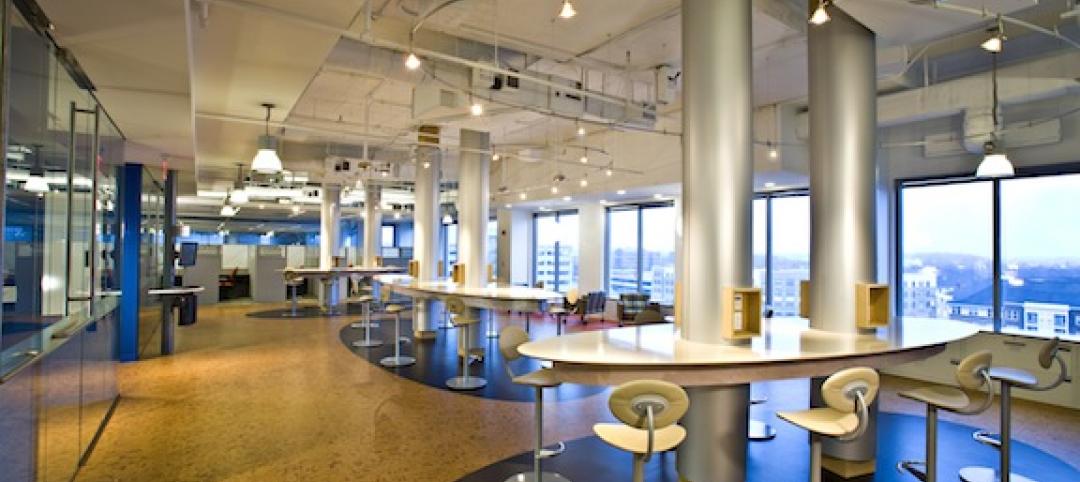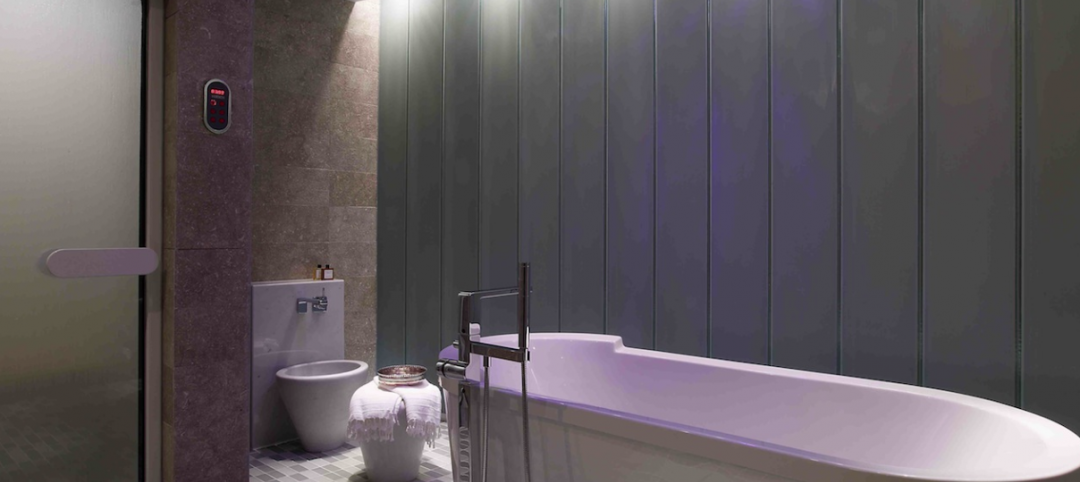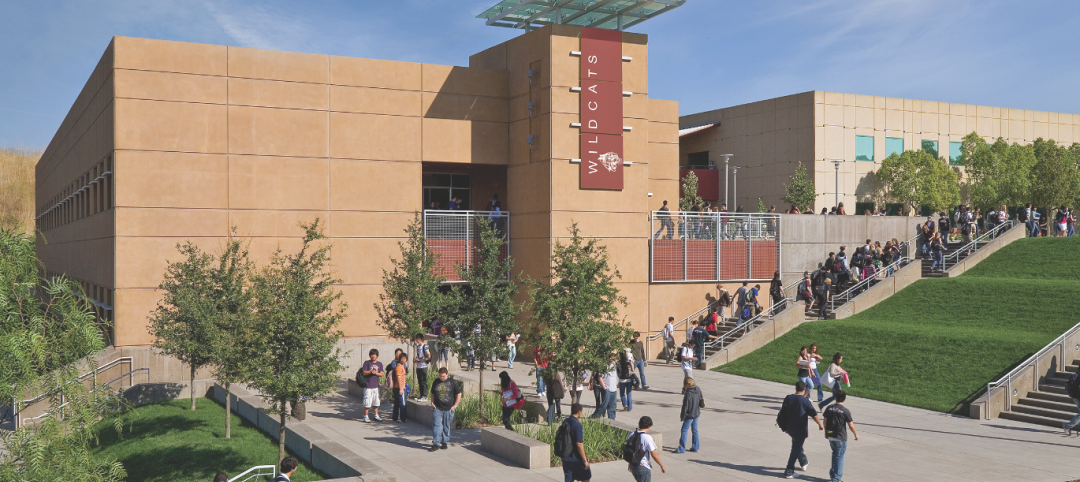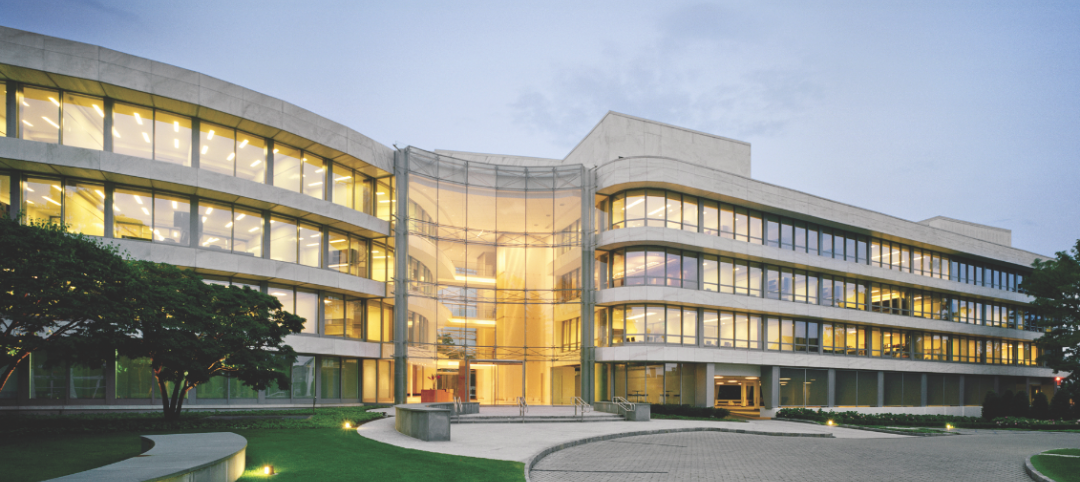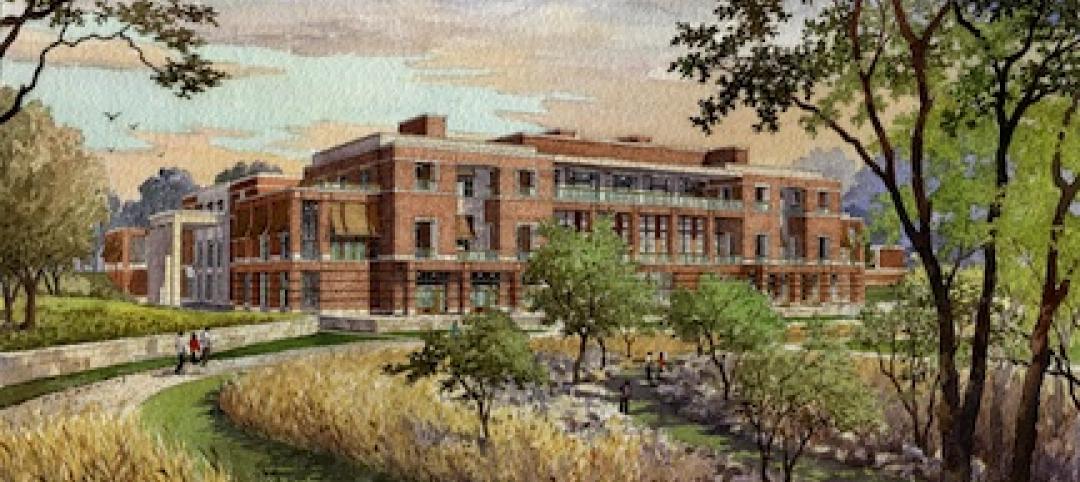Since 1950, the College World Series has been played in Omaha, Neb., the only NCAA event that has stayed in one location for over 60 years. Over the course of six decades, the community of Omaha has developed strong emotional ties to the College World Series as well as to its home field, Rosenblatt Stadium.
Originally built for minor league play in the 1940s, in recent years Rosenblatt Stadium had begun to shows its age, and patchwork renovations could not improve it enough to satisfy the demands of fans, the NCAA, and CWS broadcast partner ESPN.
As the contract for the College World Series came up for renewal, the city formed a committee to evaluate whether to try to reconstruct Rosenblatt Stadium or build new on one of eight potential new sites. Once it was determined to build new and a site was selected, the Building Team, led by local A/E firm HDR Architecture Inc., in collaboration with Populous, Kansas City, Mo., worked with the owner, the Metropolitan Entertainment and Convention Authority (MECA), to refine the ballpark’s final programming and design.
SPEEDING DOWN THE BASEPATHS
The new stadium had to be ready by April 2011 for the first pitch of the 2011 College World Series, which put the project on a 28-month construction schedule. To keep up the pace, members of the local GC/CM firm Kiewit Building Group moved into the HDR Omaha office. HDR and Populous collaborated on the design process, which involved meeting the needs of ESPN, the city of Omaha, MECA, and the College World Series of Omaha.
Project summary
SILVER AWARD
TD Ameritrade Park, Omaha, Neb.Building Team
Submitting firm: HDR Architecture Inc. (AOR, structural/ME engineer)
Owner/developer: Metropolitan Entertainment & Convention Authority
Architect of MEP coordination: DLR Group
Sports architect: Populous
Consulting structural engineer: Thornton Tomasetti
ME consulting engineer, plumbing engineer: M-E Engineers Inc.
GC/CM: Kiewit Building GroupGeneral Information
Size: 253,638 sf enclosed, 597,458 sf including concourse
Construction cost: $91 million
Construction period: January 2009 to April 2011
Delivery method: CM at risk
The structural program called for the stadium to be separated into two parts, the grandstand and the lower seating bowl/outfield area. This division allowed two teams to work on the structure simultaneously during the design development phase, which saved considerable time.
The Building Team incorporated a mechanically stabilized earth wall system to retain the lower seating bowl earth fill, in lieu of a system of structural concrete retaining walls and footing. This option alone saved the project over $500,000.
“The construction of this stadium was a feat to pull off so quickly and the coordination between infield and outfield was challenging,” said Building Team Award Judge Timothy Brown, AIA, studio associate professor and director of international affairs, Illinois Institute of Technology.
MEETING THE NEEDS OF NUMEROUS PLAYERS
Unique in capacity and character, TD Ameritrade Park was built as a hybrid to accommodate not only NCAA Division I requirements for baseball but also music festivals, football, and even ice hockey.
“The Trade,” as it has come to be known, opened to a sellout crowd on April 19, 2011 (Nebraska 2, Creighton 1). The 24,000-seat stadium has the cozy feel of a minor league park but is loaded with the amenities of a Major League Baseball stadium: 26 suites, four team clubhouses, administrative offices, 5,000 sf of retail space, and a continuous 360-degree concourse. Total building area is 597,458 sf, 253,638 sf of which is enclosed.
The Building Team for TD Ameritrade Park competed against a short schedule, on a difficult site, and under public pressure to ensure the College World Series would stay in Omaha. Perhaps the highest compliment of the new park came from two long-time College World Series ticketholders who told NCAA Vice President for Baseball and Football Dennis Poppe, “Mr. Poppe, we came up here just wanting to hate this park, but it’s pretty nice.” BD+C
--
Click here to view exclusive video interviews of the 2012 Building Team Awards judges explaining their selections.
Related Stories
| Dec 7, 2010
Product of the Week: Petersen Aluminum’s column covers used in IBM’S new offices
IBM’s new offices at Dulles Station West in Herndon, Va., utilized Petersen’s PAC-1000 F Flush Series column covers. The columns are within the office’s Mobility Area, which is designed for a mobile workforce looking for quick in-and-out work space. The majority of workspaces in the office are unassigned and intended to be used on a temporary basis.
| Dec 6, 2010
Honeywell survey
Rising energy costs and a tough economic climate have forced the nation’s school districts to defer facility maintenance and delay construction projects, but they have also encouraged districts to pursue green initiatives, according to Honeywell’s second annual “School Energy and Environment Survey.”
| Dec 2, 2010
GKV Architects wins best guest room design award for Park Hyatt Istanbul
Gerner Kronick + Valcarcel, Architects, PC won the prestigious Gold Key Award for Excellence in Hospitality Design for best guest room, Park Hyatt Macka Palas, Istanbul, Turkey. Park Hyatt Maçka Palace marries historic and exotic elements with modern and luxurious, creating a unique space perpetuating Istanbul’s current culture. In addition to the façade restoration, GKV Architects designed 85 guestrooms, five penthouse suites, an ultra-hip rooftop bar, and a first-of-its-kind for Istanbul – a steakhouse, for the luxury hotel.
| Dec 2, 2010
U.S Energy Secretary Chu announces $21 Million to improve energy use in commercial buildings
U.S. Energy Secretary Steven Chu announced that 24 projects are receiving a total of $21 million in technical assistance to dramatically reduce the energy used in their commercial buildings. This initiative will connect commercial building owners and operators with multidisciplinary teams including researchers at DOE's National Laboratories and private sector building experts. The teams will design, construct, measure, and test low-energy building plans, and will help accelerate the deployment of cost-effective energy-saving measures in commercial buildings across the United States.
| Nov 29, 2010
Data Centers: Keeping Energy, Security in Check
Power consumption for data centers doubled from 2000 and 2006, and it is anticipated to double again by 2011, making these mission-critical facilities the nation’s largest commercial user of electric power. Major technology companies, notably Hewlett-Packard, Cisco Systems, and International Business Machines, are investing heavily in new data centers. HP, which acquired technology services provider EDS in 2008, announced in June that it would be closing many of its older data centers and would be building new, more highly optimized centers around the world.
| Nov 29, 2010
New Design Concepts for Elementary and Secondary Schools
Hard hit by the economy, new construction in the K-12 sector has slowed considerably over the past year. Yet innovation has continued, along with renovations and expansions. Today, Building Teams are showing a keener focus on sustainable design, as well as ways to improve indoor environmental quality (IEQ), daylighting, and low-maintenance finishes such as flooring.
| Nov 29, 2010
Renovating for Sustainability
Motivated by the prospect of increased property values, reduced utility bills, and an interest in jumping on the sustainability bandwagon, a noted upturn in green building upgrades is helping designers and real estate developers stay busy while waiting for the economy to recover. In fact, many of the larger property management outfits have set up teams to undertake projects seeking LEED for Existing Buildings: Operations & Maintenance (LEED-EBOM, also referred to as LEED-EB), a certification by the U.S. Green Building Council.
| Nov 23, 2010
The George W. Bush Presidential Center, which will house the former president’s library
The George W. Bush Presidential Center, which will house the former president’s library and museum, plus the Bush Institute, is aiming for LEED Platinum. The 226,565-sf center, located at Southern Methodist University, in Dallas, was designed by architect Robert A.M. Stern and landscape architect Michael Van Valkenburgh.
| Nov 23, 2010
Honeywell's School Energy and Environment Survey: 68% of districts delayed or eliminated improvements because of economy
Results of Honeywell's second annual “School Energy and Environment Survey” reveal that almost 90% of school leaders see a direct link between the quality and performance of school facilities, and student achievement. However, districts face several obstacles when it comes to keeping their buildings up to date and well maintained. For example, 68% of school districts have either delayed or eliminated building improvements in response to the economic downturn.



